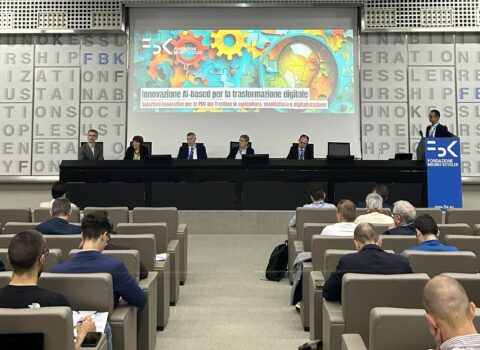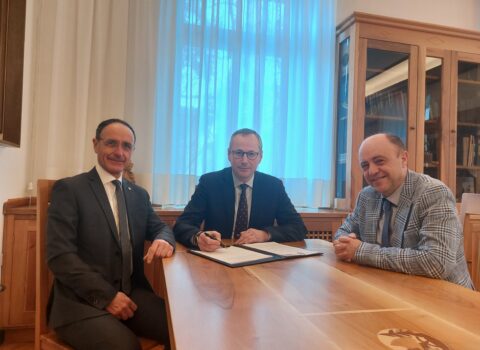
InnovAction: 3 million euros for the digital and ecological transition of SMEs
Digital and sustainable innovation is now within reach for companies, thanks to services that are either fully funded or offered at reduced rates through InnovAction. This initiative includes leading institutions such as Fondazione Bruno Kessler, Cefriel (Digital Innovation Center), Fondazione LINKS, the University of Naples Federico II, and Intesa Sanpaolo.
Small companies with big ambitions: already twenty businesses—mainly microenterprises spread across Italy—have embarked on a journey of digital and ecological transformation with the support of InnovAction, Italy’s network of Technological Innovation Centers.
InnovAction addresses the specific digitalization needs of companies facing mounting competition and shrinking growth margins. The consortium’s services are tailored to help businesses become more efficient, agile, and competitive in both national and international markets. With InnovAction, digital and green transitions are not ends in themselves but become strategic tools to help companies capture emerging market trends and turn advanced technical skills into tangible products.
The initiative proves that innovation isn’t the sole domain of large corporations—it’s a strategic lever accessible to even smaller enterprises when supported by the right blend of expertise, financial resources, and customized guidance. InnovAction is a virtuous model that places businesses at the heart of development, helping them shape a sustainable and digital future.
Led by Cefriel and including the LINKS Foundation, Fondazione Bruno Kessler, the University of Naples Federico II, and Intesa Sanpaolo, InnovAction was created to democratize access to digital and sustainable innovation. It provides consulting, training, financing access, and advanced technology solutions even to the smallest businesses.
Numerous consulting and training services are available at highly reduced costs—sometimes up to 100% coverage. These include data utilization, cybersecurity, manufacturing process innovation, new product and service design, funding resource identification, and opportunities to collaborate with emerging business ventures under the Open Innovation framework.
Funding is still available for activities such as Proof of Concept development, pre-investment testing, training, business coaching, and funding advisory—targeted at projects to be completed by February 2026. The services are highly flexible and can be combined to support companies from the early design stage through to execution. Training and expert consulting are integrated into a seamless development process.
Some of the most notable examples include:
- Omme Gears, a company specializing in precision gearboxes and gears, has launched a project with Cefriel to implement a digital platform for real-time production management. This transition enhances both efficiency and environmental sustainability. The platform not only reduces paper usage but also fully digitizes the planning process, paving the way for future developments—such as integrating artificial intelligence to further optimize planning.
- Hub Project Italia, operating in the renewable energy sector, has developed a digital platform to simplify access to and management of Renewable Energy Communities, with a strong focus on user experience.
- Modellando, a company in the optical center furniture sector, has embraced innovation with the creation of a modular smart table. This product helps customers select the most suitable lenses, blending design, technology, and personalized service.
- The Big Hack, a hackathon organized in collaboration with Maker Faire Rome and the Municipality of Naples, showcased the benefits of Open Innovation for SMEs in the areas of Advanced Manufacturing and Digital Transformation. The event also involved students from the Apple Developer Academy at the University of Naples Federico II.
- Chimera, a startup, has partnered with Cefriel to bring Artificial Intelligence to e-commerce. The initiative equips small Italian retailers with simple yet effective tools to tackle digital transformation.
Accessing funding is straightforward for SMEs, startups, and micro-enterprises: they simply need to contact InnovAction and speak with experts about their innovation needs.
“Companies often struggle to navigate among technologies and strategies while trying to remain both competitive and sustainable,” says Alessandro De Biasio, CEO of Cefriel.
“SMEs, especially those in the South, often miss out on the opportunities presented by emerging digital technologies,” adds Giorgio Ventre, Scientific Director at the University of Naples Federico II. “Artificial Intelligence, Cloud Computing, and Cybersecurity risk becoming empty buzzwords. InnovAction’s role is to demonstrate their true value through training, advanced prototyping, and connecting with researchers and innovators. ”


